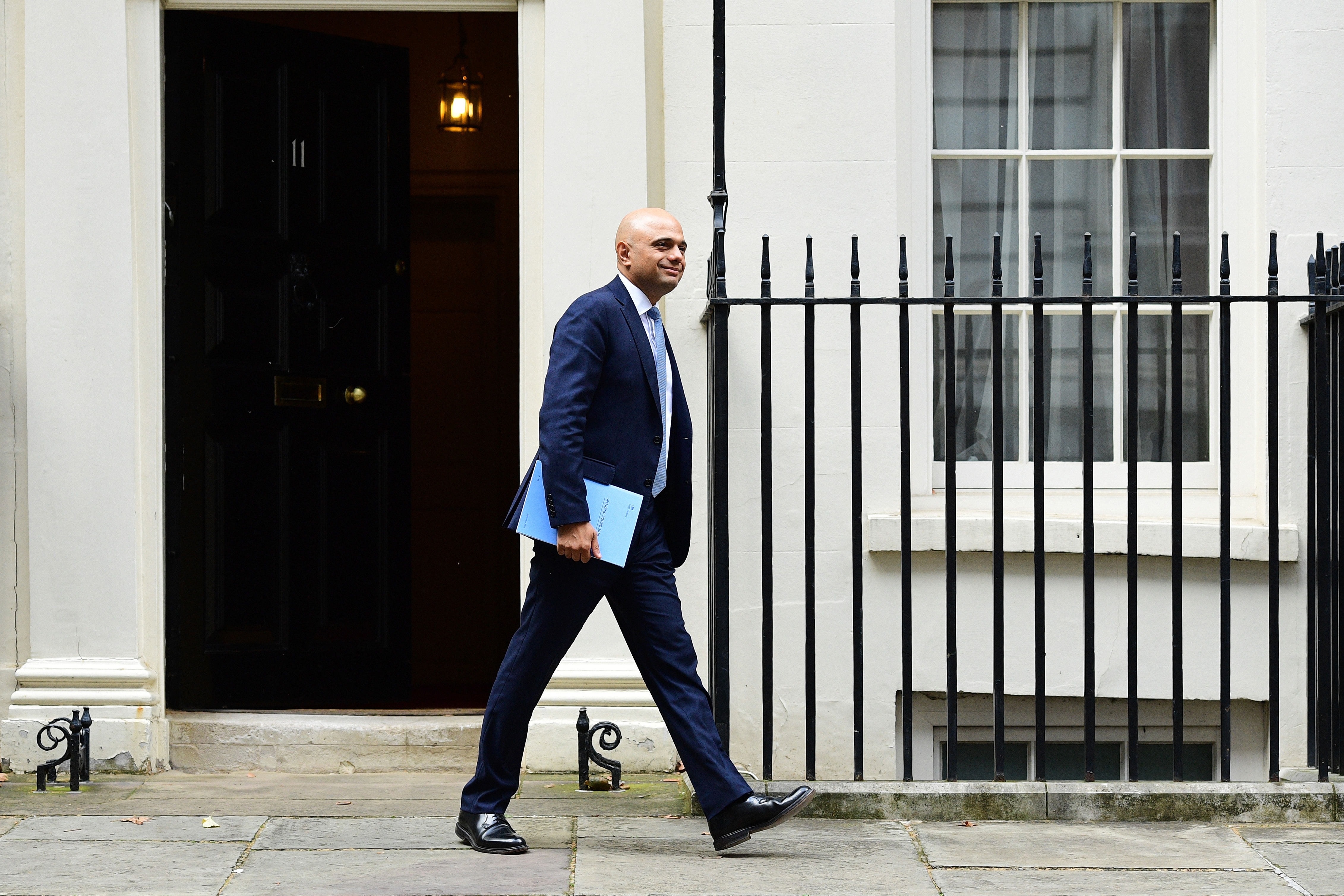Does Sajid Javid’s spending plan add up?
Critics say the plan, detailed yesterday in parliament, is little more than cynical political manoeuvring ahead of a general election


A free daily email with the biggest news stories of the day – and the best features from TheWeek.com
You are now subscribed
Your newsletter sign-up was successful
Chancellor Sajid Javid yesterday signalled the end of austerity, timed to boost the fortunes of a government desperate for votes as a snap election looms.
The Treasury wants to increase spending at a time when the deficit - the difference between the money the public sector receives and its day-to-day spending - is at a 17-year-low. And in the House of Commons yesterday Javid immediately politicised the move: “After a decade of recovery from Labour’s great recession, we are turning the page on austerity and beginning a new decade of renewal.”
He was also “rebuked several times by Speaker John Bercow, who claimed that his opening remarks were ‘out of order’ because they veered into Brexit territory”, reports Sky News.
The Week
Escape your echo chamber. Get the facts behind the news, plus analysis from multiple perspectives.

Sign up for The Week's Free Newsletters
From our morning news briefing to a weekly Good News Newsletter, get the best of The Week delivered directly to your inbox.
From our morning news briefing to a weekly Good News Newsletter, get the best of The Week delivered directly to your inbox.
Javid announced that the first priority would be to rebuild the national infrastructure, saying “across many decades governments of all colours have under-invested in infrastructure”.
The relatively low deficit, along with historically low borrowing rates, is how the government is defending its spending surge, a package that amounts to a total £13.8bn of investment.
Day-to-day spending, adjusted for inflation, would rise 4.1%, and would be funnelled into the policy priorities of Boris Johnson’s government. As the BBC points out, “funding is pouring into those public services most visibly problematic for the Conservatives in the 2017 general election, ahead of yet another fairly imminent visit to the polls.”
Reuters adds: “Javid, a former Deutsche Bank managing director, said he was sticking with Britain’s fiscal rules for Wednesday’s one-year spending plan. But he suggested he would borrow more in the future to take advantage of record-low borrowing costs.”
A free daily email with the biggest news stories of the day – and the best features from TheWeek.com
There are doubts that, in reality, the increase in spending has been brought about by increased “fiscal headroom”, however, as he would have us believe. Instead, many commentators suggest that this is a political move taken by a government that believes that short-term political pressures outweigh the long-term fiscal responsibility.
The Financial Times reports on the internal thinking behind the announcement: “Treasury insiders admitted they were operating under instructions to turn into numbers the words that Mr Johnson issued when he entered Downing Street in July, when he promised to increase funding for what he calls ‘the people’s priorities’.”
This “triptych” of priorities, the FT explains, are the ones so often referenced by the new prime minister: health, law and order and education.
The Telegraph defends the move, pointing out that the “Institute for Fiscal Studies noted the planned increases in spending for departments including the Home Office, Ministry of Justice and Defra still left their budgets well below 2010 levels, indicating ‘the end of austerity’ would not mean a return to historic budget levels.”
“To come here to try and fool us with references to ‘people’s priorities’ is beyond irony,” said shadow chancellor John McDonnell in the House of Commons. “We are expected to believe that these Tories, who for years have voted for harsh, brutal austerity, have had some form of Damascene conversion.”
In The Independent, James Moore’s analysis is withering. “Usually I’d try to offer some financial and economic analysis of the announcement; looking at what the chancellor was trying to do with this or that, what they missed, what the implications were for the public finances, the economy, and so on,” Moore writes. “With this, hurried out before the Office for Budget Responsibility had the chance to downgrade its economic forecasts in response to the latest fairly dreadful data, there’s really no point.”
William Gritten is a London-born, New York-based strategist and writer focusing on politics and international affairs.
-
 6 of the world’s most accessible destinations
6 of the world’s most accessible destinationsThe Week Recommends Experience all of Berlin, Singapore and Sydney
-
 How the FCC’s ‘equal time’ rule works
How the FCC’s ‘equal time’ rule worksIn the Spotlight The law is at the heart of the Colbert-CBS conflict
-
 What is the endgame in the DHS shutdown?
What is the endgame in the DHS shutdown?Today’s Big Question Democrats want to rein in ICE’s immigration crackdown
-
 Can the UK avoid the Trump tariff bombshell?
Can the UK avoid the Trump tariff bombshell?Today's Big Question President says UK is 'way out of line' but it may still escape worst of US trade levies
-
 Five years on, can Labour's reset fix Brexit?
Five years on, can Labour's reset fix Brexit?Today's Big Question Keir Starmer's revised deal could end up a 'messy' compromise that 'fails to satisfy anyone'
-
 Why au pairs might become a thing of the past
Why au pairs might become a thing of the pastUnder The Radar Brexit and wage ruling are threatening the 'mutually beneficial arrangement'
-
 Brexit: where we are four years on
Brexit: where we are four years onThe Explainer Questions around immigration, trade and Northern Ireland remain as 'divisive as ever'
-
 Is it time for Britons to accept they are poorer?
Is it time for Britons to accept they are poorer?Today's Big Question Remark from Bank of England’s Huw Pill condemned as ‘tin-eared’
-
 Is Brexit to blame for the current financial crisis?
Is Brexit to blame for the current financial crisis?Talking Point Some economists say leaving the EU is behind Britain’s worsening finances but others question the data
-
 The cost-of-living support available from government
The cost-of-living support available from governmentfeature Downing Street says no further measures will be rolled out before new PM is in place
-
 Why the government opposes a windfall tax on oil and gas profits
Why the government opposes a windfall tax on oil and gas profitsfeature BP profit surge triggers renewed calls for a levy to help struggling households
